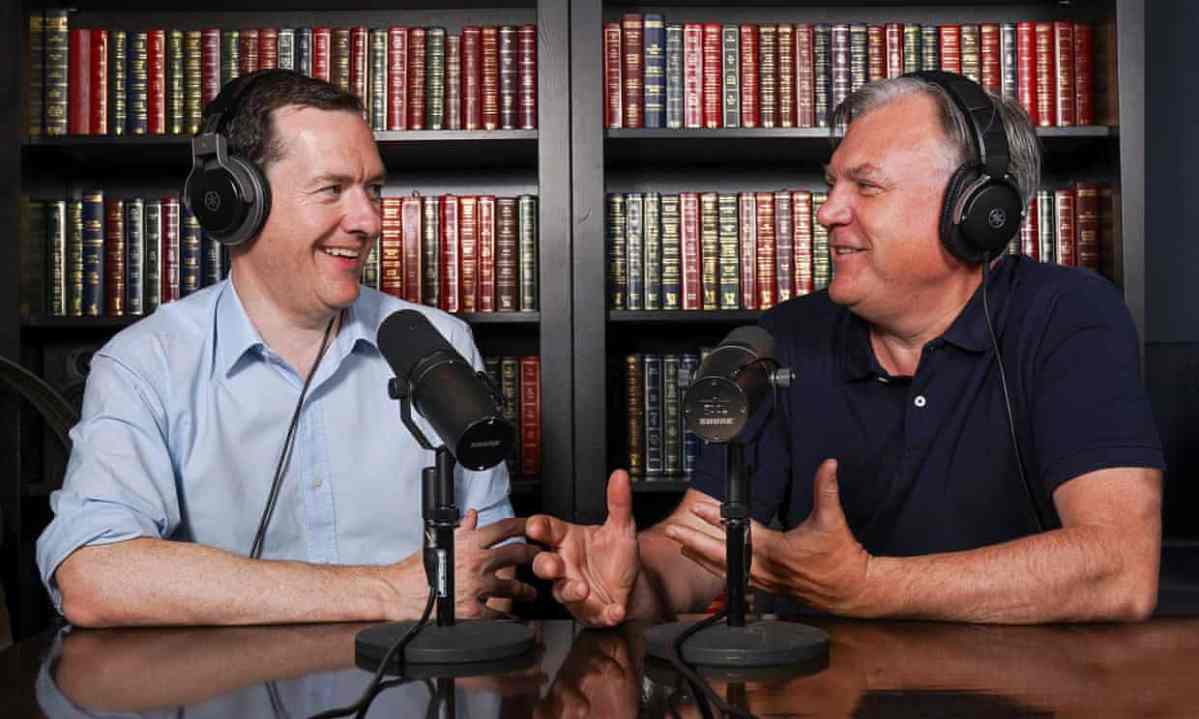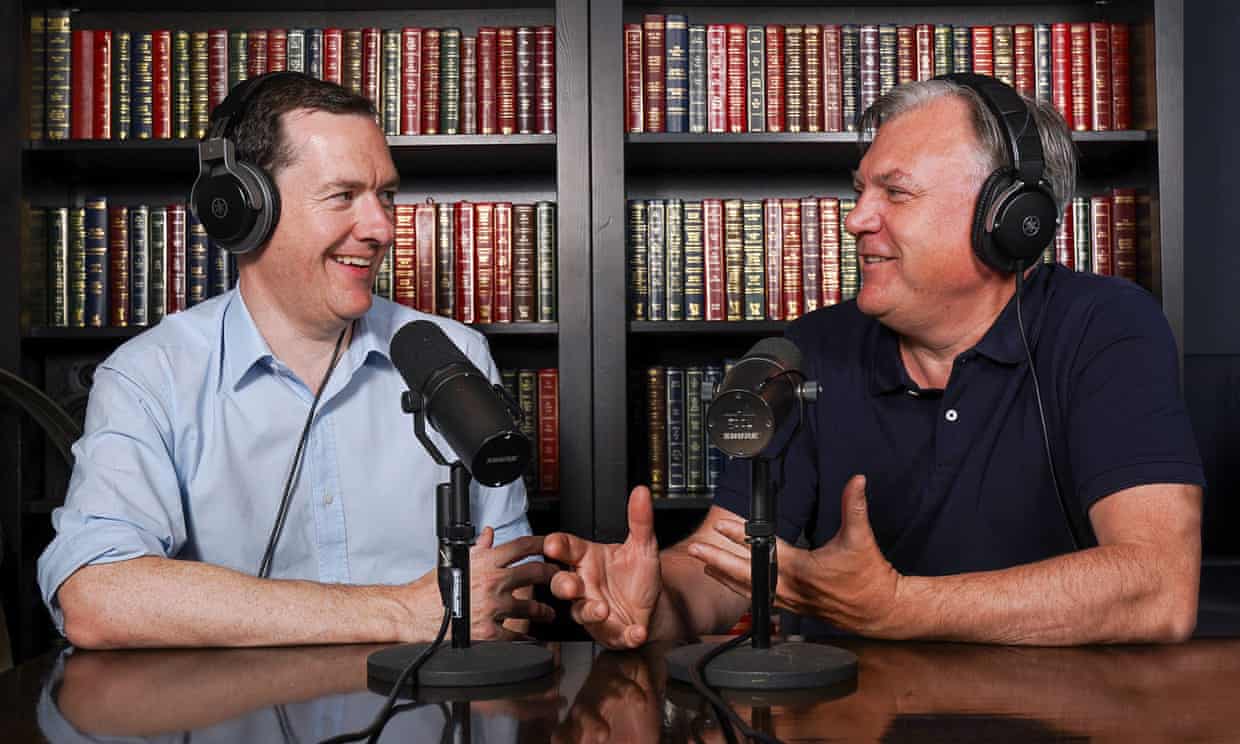It doesn’t seem like 13 years since I strolled down to the Cabinet Office after work on a May evening to enjoy a bit of protest tourism. A largeish crowd of the usual malcontents – students, crusties and the Socialist Workers’ party – had gathered to harangue the Tory and Lib Dem representatives who were hammering out the coalition agreement. The government that emerged from those talks made reducing the deficit its priority, and in those far-off halcyon days, before Brexit and Corbyn and Covid, when Donald Trump was still hosting The Apprentice, ‘austerity’ was the great political battleground. And for almost all of the subsequent five years, it was Ed Balls and George Osborne who fought each other over government spending.
Sensibleism, like civilisation, is easier to recognise than define, but essentially it involves a kind of fetishisation of moderation and the centre ground
Now, a decade on, the two men have gone the way of all middle-aged male flesh and started a podcast, which will make its debut this week. It remains to be seen whether Political Currency will be a success in such a crowded market. The central gimmick – two political foes find that they have a lot in common after all – is not new. Rory Stewart and Alistair Campbell have been ploughing that particular furrow for 18 months now, with the Rest Is Politics.
The Rest is Politics lads have apparently done very well. Fair play to them if that’s the road they want to take. But in terms of the quality of their discussions – a separate issue from their popularity – they have a problem which Balls and Osborne will also have. They just don’t really disagree that much on the most fundamental and important questions, which means that there is a basic dishonesty in the framing of their conversations as a heartwarming rapprochement between enemies.
Balls and Osborne, like Stewart and Campbell, both campaigned to remain in the EU. Both are liberal on borders – in 2018 Osborne suggested, with an optimism bordering on delusion, that Remain might have won if they had talked more about immigration – and neither of them has ever shown much interest in anything but a mainstream liberal approach to crime and justice, to culture, to the family. I shall be enormously surprised if either of them dissent meaningfully from the ruling class consensus on the Ukraine war, or net zero, or free speech. The disturbing rise of racial grievance politics in the UK over recent years appears to bother them not a jot, if their public pronouncements are any guide. I suspect both would rather have complicated dental surgery than join Nigel Farage for a Sunday roast and a pint of Theakston’s at the George & Dragon. Their disagreements are confined almost entirely to economic matters, and even there the differences are not so very great.
Maybe I am out of touch with what the podcast-listening public really want. It is quite likely that the Ed ‘n’ George show will go down a storm with the punters who like to listen to political podcasts. I have heard these folk called the ‘sensibles’. Understanding sensibleism is key to understanding why people can regard politicos like Osborne, Balls, Campbell and Stewart as spanning the whole spectrum of opinion, despite their having very similar views on most issues of any significance.
Sensibleism, like civilisation, is easier to recognise than define, but essentially it involves a kind of fetishisation of moderation and the centre ground. This means that sensibles, though in most cases objectively on the soft left, have a self-regarding view of themselves as the custodians of the proper parameters of public debate, charting a wise and brave via media between the extremes of left and right. They feel faint if they have to be in the same room as a copy of the Daily Mail, but they certainly don’t read New Left Review (Marxist theory is too earnest to be sensible).
Sensibleists are nominally cosmopolitan, and this aspect of their personalities has become especially important since 23 June 2016, but for many, it’s a kind of perfunctory veneer. Being pro-European is a way of defining oneself against the ghastly Leavers, rather than necessarily involving a close understanding of the EU or its member states. They have a horror of ‘stoking the culture war’, a dreary cliché which they use to describe conservatives who take a principled stance on an issue rather than staking out a self-consciously nuanced middle position that annoys literally everyone. Sensibles also love Nicola Sturgeon because she’s A No-Nonsense Woman Who Rejected The Westminster Pantomime And Got Things Done, although you should prepare for a certain amount of uneasy silence if you ask them what exactly those things were.
Indeed, the proceedings at Westminster are a constant source of chagrin to the Sensible mind, even with the changes made in the last 30 years. It’s too adversarial and male and old-fashioned, so we should replace the opposing benches with a semi-circular chamber to make things more collaborative and family-friendly. After all, good decisions happen when the stakeholders get together.
Part of the sensibleist problem with Westminster, and the traditional constitution in general, is the continuing use of solemn ceremonial. Serious things are done seriously, with the trappings of an ancient kingdom. There is no winking at the camera to sweeten the pill with tweeness or whimsy. This makes sensibles uncomfortable for it represents a deep and perhaps unanswerable challenge to their Whiggish assumptions about the superiority of the contemporary social settlement. Easier to laugh at the wigs and the swords and the bearskin hats and crack laboured jokes about coronations being ‘silly’ than to engage with the multiple layers of meaning embedded in the rituals.
These are broad brush strokes. But we are seeing the relentless rise of political podcasts and radio shows that are little more than an opportunity for presenters, guests and listeners to congratulate one another for their reasonableness. James O’Brien on LBC was a pioneer of the form, nitpicking inarticulate and intemperate callers as alleged examples of the dangers of straying outside his carefully policed centre ground. The News Agents, hosted by Emily Maitlis, Jon Sopel and Lewis Goodall, also relentlessly peddles the conventional wisdom of the post-Blair status quo, beloved of the civil-service-media-academic nexus.
No doubt the former chancellor and his erstwhile shadow will have good clean fun reliving the heady days of 2011 to 2015. Looking back now, politics in that period does feel somehow calmer and less ominous. Et in arcadia ego, bliss it was in that dawn to be alive, and all that. Nevertheless, I very much doubt that their cosy chats will generate any meaningful insight about the challenges of 2023.







Comments